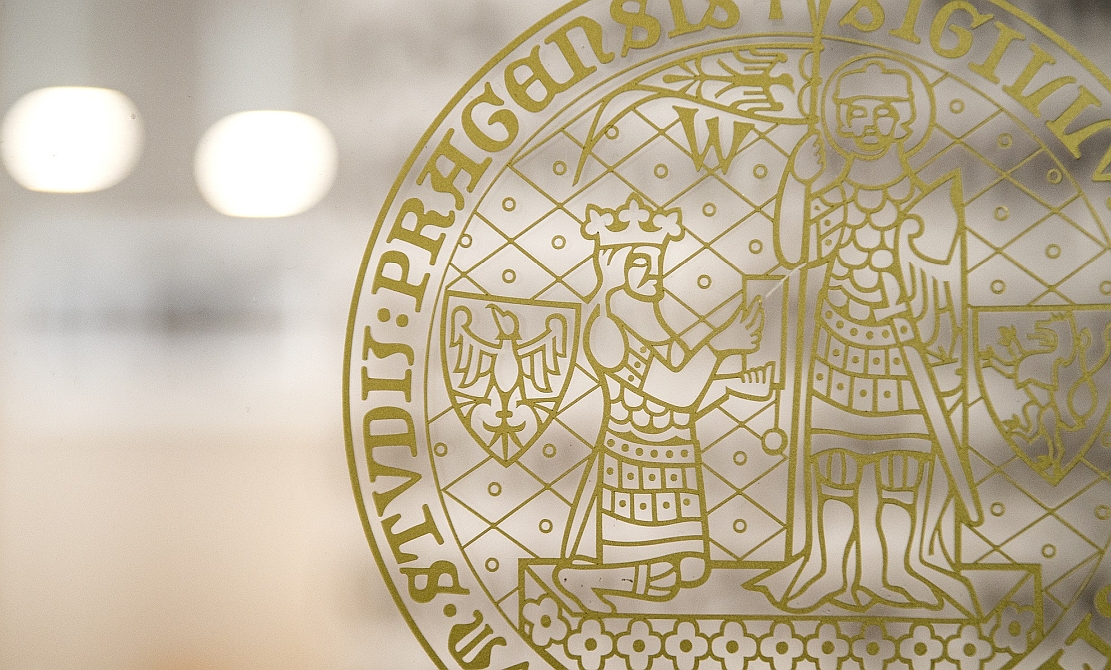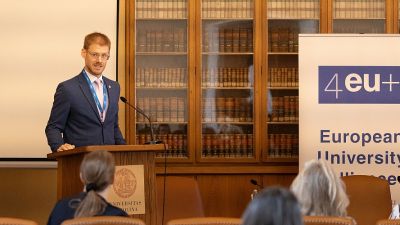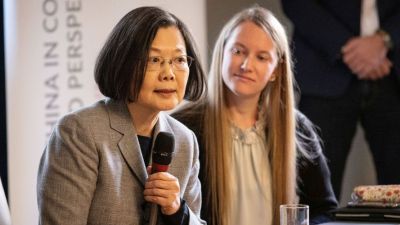R.H. Huizinga is a highly-respected Educational Specialist at the University of Groningen in the Netherlands and one of the most anticipated speakers at the 2nd Paedagogium Platform Conference on Thursday 14 November. The aim of the event is largely to share experience and allow mutual discussion among academics and practitioners in the field of higher education, with a special emphasis on T&L Centres. Not long ago we spoke to Sarah Leupen; we posted similar questions to R.H. Huizinga about T&Ls and the event itself.
How much are you looking forward to the conference?
This is quite exciting for me as it gives me an opportunity to meet and learn from teachers, students, and educational developers in Czechia at a time when there seems to be some energy for pedagogical competence and teacher education for university instructors. I’m fond of our team/department at the University of Groningen learning from these types of areas because we then learn new and updated ways to breathe ‘fresh life’ into our own programmes. So mutually beneficial, you could say.
An example of this was our recent work on a large four-year project in partnership with the Ministry of Higher education in Poland. As a result of the research, training, and teaching development we worked on there, we overhauled our own mandatory ‘University Teaching Qualification’ at the University of Groningen which had been in existence for over 12 years.
What sets this conference apart?
I think what is important (maybe not apart) is the importance of the discussions that will take place at such an event. For Charles University, and their new qualification for teaching, it takes some effort to organise such an initiative and in the busy world of academia, getting people together to talk about teaching and learning is not always so easy… but crucial to future educational improvement.
The overarching topic this year is Institutional change through Teaching and Learning Centres. How much is that at the forefront in schools today? Does it vary?
It varies a bit internationally but also in each specific country. These Centres are somewhat common and folks in these roles do similar kinds of work. The important thing, however, is that each university and Centre must prioritise what this centre is for. Some places focus on ‘excellent’ teaching for just a few. Others have a baseline qualification for all teachers. Others focus on community groups. It’s important that this is discussed and decided upon with the input from various stakeholders. This also, then, gets at the heart of my talk which hopes to simply spur on these conversations and (possible) decisions.
Is it correct to surmise that the aim of such a conference is to share best practices, news of the latest developments or trends?
Indeed, but with the discussions that follow. Every talk that shares new trends should always be followed with the more difficult task of discussing how those ideas can be developed at each unique institution. Or more importantly, share what hasn’t worked or even failed.
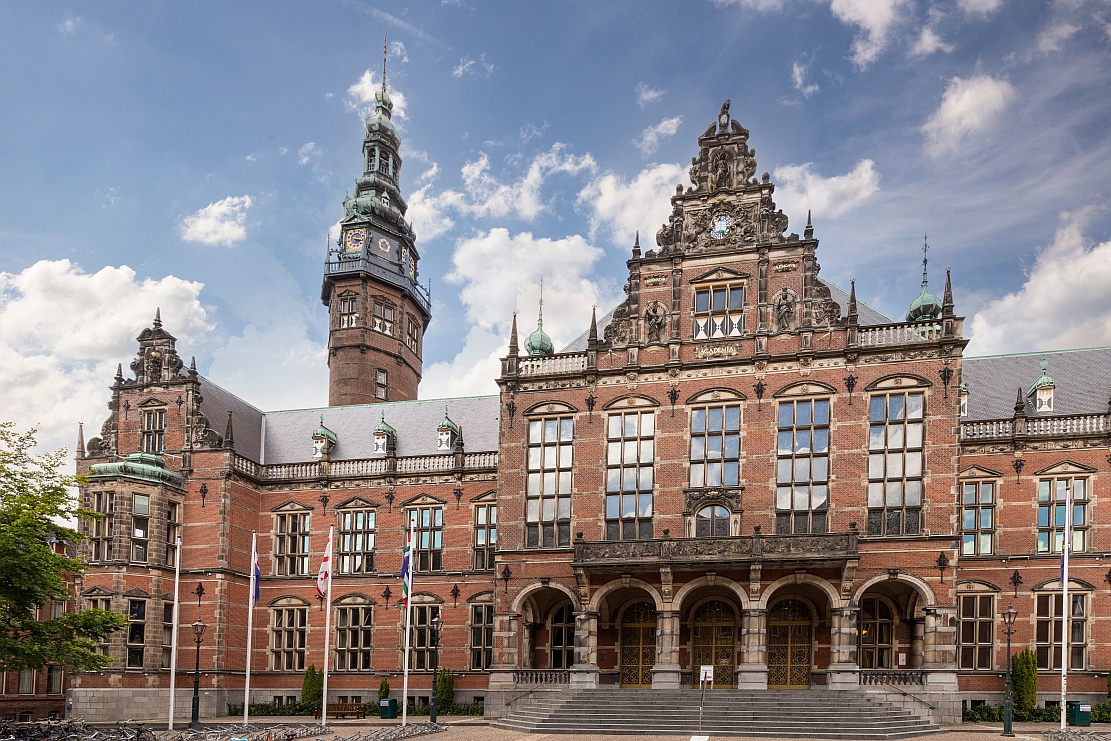
The main building of the University of Groningen, the Netherlands.
What is your role within your university regarding teaching and learning development?
Though I advise on educational topics at all levels of our university, I am primarily focused on university teaching development. So, how do we best prepare teachers for classroom teaching? How do we make sure they are supported to build quality courses and curricula? How do we do this at different career levels? And throughout all of this, how does this match institutional, national, and international trends or strategies in education?
If we focus on what Centres do, what are things that you consider more important? (For someone it might be faculty development, for another, support in terms of integrating new technology, diversity and inclusion.)
This very much depends at which level of teaching experience we choose to focus on. For early-career teachers, it’s mainly a baseline of ‘good’ practices in teaching. After that, it can move to specific topics such as AI in education, inclusive education, challenge-based learning etc. Then it’s a nice for the baseline knowledge in education to be a common language…but after that we want teachers to specialize in some way. This variation can help all students—wouldn’t it be terrible if every teacher taught the exact same way?
What are some schools abroad that opened your eyes in terms of their approach?
This is hard to say, I’ve lived (mostly) in four countries but have worked extensively in several others. One thing I’ve appreciated about this experience is that you can pick up these little tips from each place that then become a part of your holistic conception of education. I’m looking forward to knowing that after this conference, I will add some ideas that I pick up from Charles University.
This kind of support, and added infrastructure, sounds like it can be invigorating. Is it, usually?
It can be invigorating for some teachers and it does create communities across campus. But it’s important to recognise that not every person in higher education will be a highly motivated teacher. Many professional identities are much more built around research and this is completely fine, of course. It just means teaching and learning centres also have to vary what they do. Sometimes it’s about the average baseline for all teachers. At other times it’s a community group to inspire those most motivated to innovate education. And at other times it’s simply a quick training on a certain tool that improves the learning and experiences of students.
Are there any downsides, or areas where kids’ gloves are needed?
Continuing the last answer, those who don’t wish to primarily think of themselves as a teacher is fine…be a great researcher. However, an educational institution still has the purpose to help students learn so these folks have to be open to new ideas or new feedback once in awhile. So what do we do in university teacher education—come from a top-down ‘forcing’ approach? Maybe sometimes such as a basic qualification. But even inside that qualification it means how do we support teachers and make their job just a little bit easier or more fun?
Another downside is that of workload. How can we as educational developers not always focus on the ‘ideal’ but speak to the reality of an academic’s situation and do what’s best to the reality of a situation.
How do you formally gauge improvement in this area or success? Through reports, surveys, class feedback, other methodology?
All of the above…and more. But the evaluation should not be felt from teachers as evaluating their performance. The focus is development which means this is both formal and informal sources of information from teachers, students, administrators, employers, and the list goes on. There are standards for what an effective structure for a CTL can be, but the heart of this is how teacher and student experiences are improved.
This may have already been partially answered, but I am particularly interested in your personal experience: could you tell me some way you or your university benefitted from either an in-house approach or outside example?
We have two that immediately come to mind. We have a mandatory teaching qualification all teachers must take. It ensures that most teachers speak a common language about what effective education is. When I also see/hear this information being used to make key decisions, then I am very happy.
Related is our more advanced programme which is called the ‘senior teaching qualification’. What I like about this is that motivated teachers work on educational improvement at a programme level. The reason I like this approach is that it takes motivated teachers and expands their vision to the wider faculty, in a real way.
Likewise, I would be curious, if there were elements that didn’t work or were rejected?
Too many failures to admit, actually, because we hopefully try a lot of new things. Our voluntary programmes that aren’t structured into the university never work very well. Teachers are too busy and we sometimes focus too much on topics that are not always urgent to the average teacher.
Also, in years past we focused way too much on the assessment of teachers (assignments or portfolios) and this was eventually changed because it didn’t focus enough on growth and development.

Charles University's Rector Milena Králíčková and her team have outlined that T&L Centres - and the role they serve - are a top priority.
Universities themselves are seeking to always improve, but for historic reasons, some approaches came to Czechia perhaps later than in western Europe. Is that the case?
Certainly not behind. I think teachers in higher education are some of the most hard-working and practically creative people I know (yes, I’m also biased). This is true in every single country I’ve been to. Beyond that, universities everywhere are successful and innovative because they still, after hundreds of years, have figured out a way to serve society in each context. Our university has been successful in the Netherlands. Charles University in Czechia. Seems to me students are learning all over the world and comparing doesn’t really help anyone, particularly the students or teachers.
It’s been a long time since I’ve been a student in a classroom, but in terms of approaches I imagine that the classroom and teaching experience today must be in some ways light years away from what I experienced doing my Master’s in the late ‘90s. Is it?
Ha—I hope so! But I think classroom setups will largely look the same, with some exceptions. That said, the way students complete assignments, access information, and interact with each other is indeed quite different, as you can imagine.
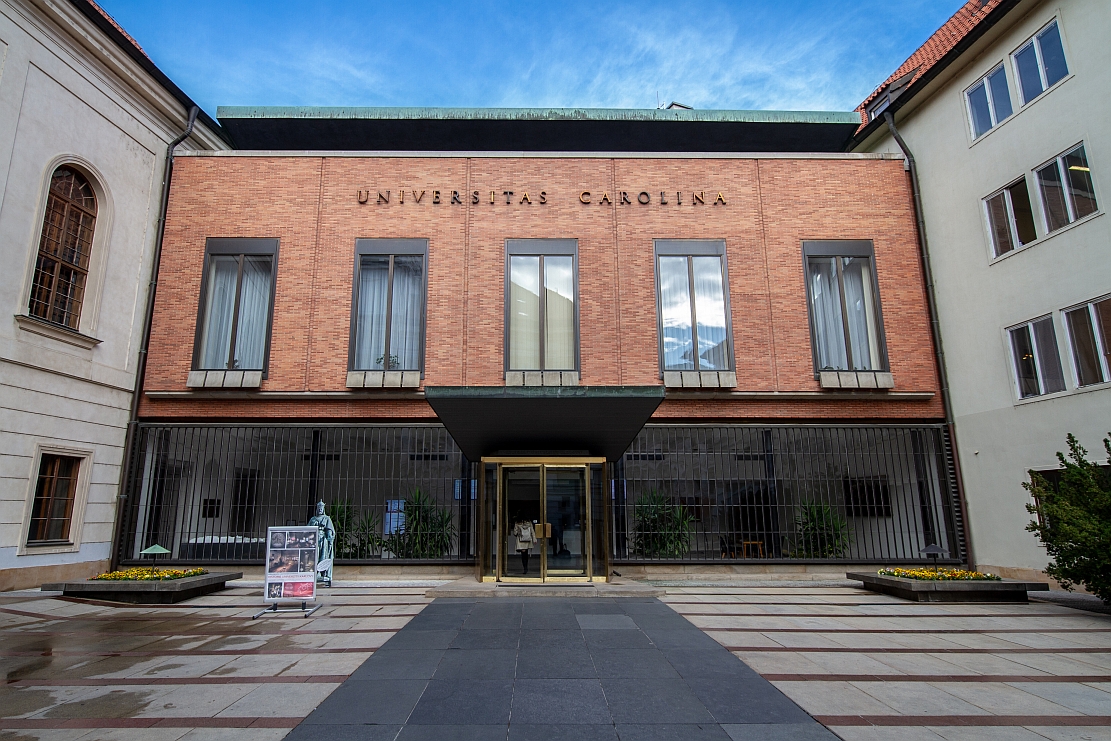
Charles University - site of the 2nd Paedagogium Platform Conference on Thursday 14 November.
Is there anything ‘old fashioned’ that remains from before: the joint reading of a text perhaps, debates, venturing outside the classroom in a social studies class?
What’s more important is to realise that everything ‘new’ is not always what’s most effective. Yes, sometimes a teaching style can be outdated. But many other times these ‘old fashioned’ ideas are still around because they work. And this can be in the same practice. At times, do students need direct instruction and also insight into how an expert research solves a problem? Absolutely—long live the traditional lecture! But, can lectures sometimes get too focused on content delivery without focusing on the learning of students? Also very true.
What do you think the future will bring?
Right now, we know many things will change but we’re just at the beginning of it so I personally think we’re in the middle place where we go backwards in some way…and not necessarily in a bad way. For example, you see more oral exams, multiple choice, and formats that have been around for awhile but are somewhat AI-proof. What you also see are less essays, more work in class under guidance of the teacher, and a focus on process over final product. Later on, I suspect even more changes but all new practices might not look so new after all.
You can find the full programme of the conference here






